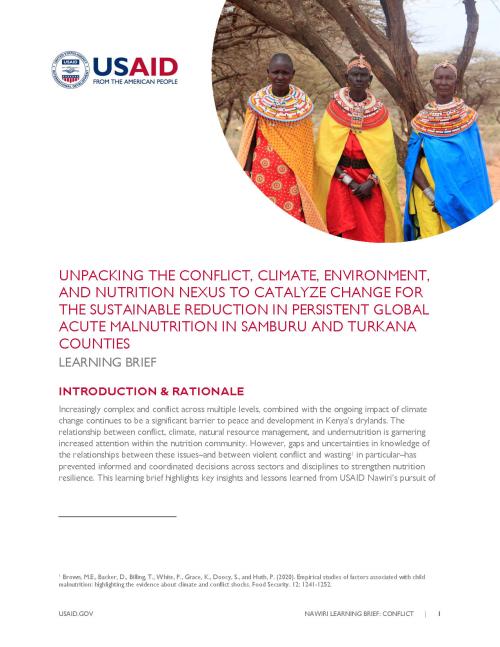This brief highlights insights and lessons from USAID Nawiri’s review of the relationship between conflict and persistent global acute malnutrition. The program used county and community consultations, context monitoring, social listening, learning sprints, and structured conversations to distill insights, as follows: 1) strengthening an enabling environment for sustainable conflict management and nutrition resilience requires hybrid structures to manage conflict and natural resources across landscapes. Programs that fail to conceptualize conflict as a system that transcends administrative boundaries risk fueling conflict and undernutrition; 2) strengthening young people’s social and economic capital and empowering them as agents of change is key to climate-responsive peacebuilding strategies that support nutrition resilience in the pastoral landscape. Empathy is the foundation of sustainable solutions for peace and nutrition resilience in highly traumatized societies; 3) achieving peaceful coexistence between humans and wildlife is as much a social and economic development priority as a conservation one; and 4) supporting sustainable reductions in persistent global acute malnutrition in the drylands requires real-time data and models that can help predict, prevent, and mitigate the consequences of conflict and climate crises.
Learning Brief
